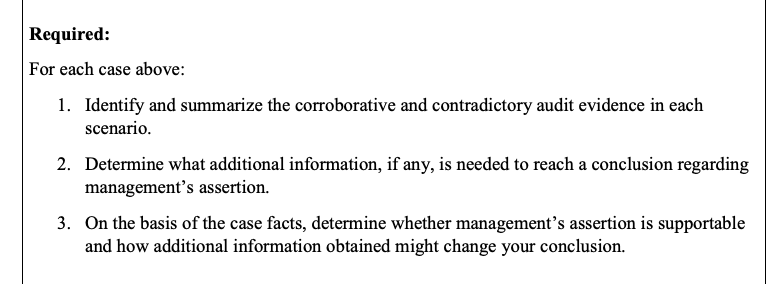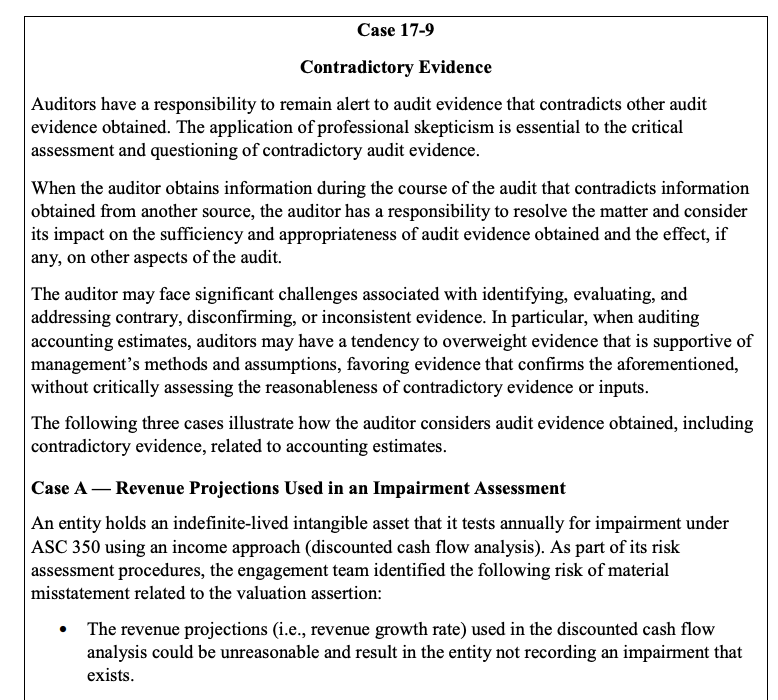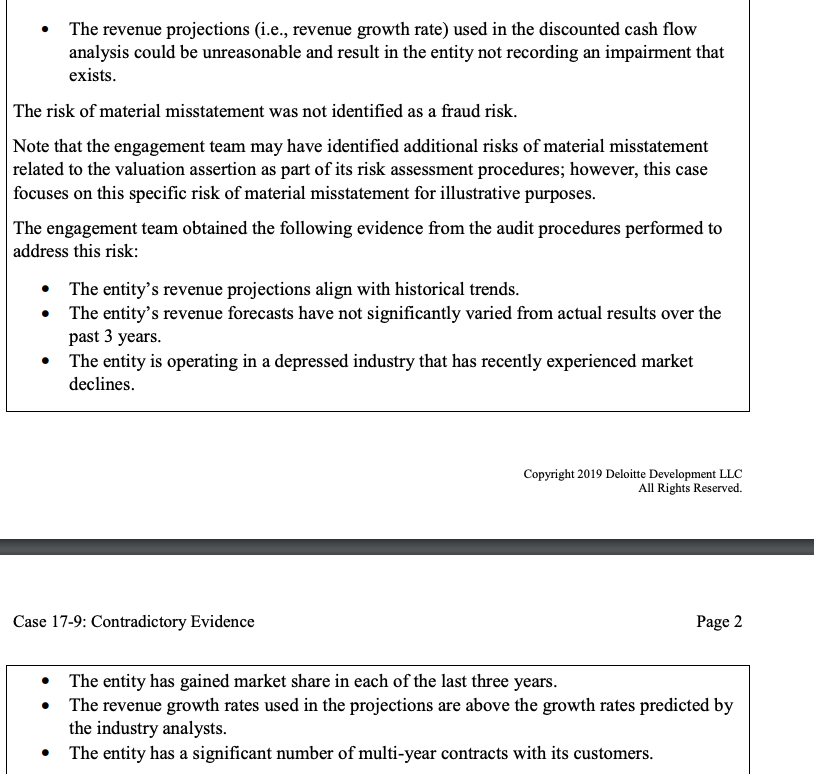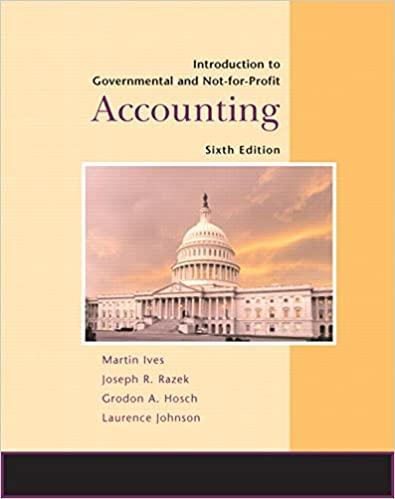


Required: For each case above: 1. Identify and summarize the corroborative and contradictory audit evidence in each scenario. 2. Determine what additional information, if any, is needed to reach a conclusion regarding management's assertion. 3. On the basis of the case facts, determine whether management's assertion is supportable and how additional information obtained might change your conclusion. Case 17-9 Contradictory Evidence Auditors have a responsibility to remain alert to audit evidence that contradicts other audit evidence obtained. The application of professional skepticism is essential to the critical assessment and questioning of contradictory audit evidence. When the auditor obtains information during the course of the audit that contradicts information obtained from another source, the auditor has a responsibility to resolve the matter and consider its impact on the sufficiency and appropriateness of audit evidence obtained and the effect, if any, on other aspects of the audit. The auditor may face significant challenges associated with identifying, evaluating, and addressing contrary, disconfirming, or inconsistent evidence. In particular, when auditing accounting estimates, auditors may have a tendency to overweight evidence that is supportive of management's methods and assumptions, favoring evidence that confirms the aforementioned, without critically assessing the reasonableness of contradictory evidence or inputs. The following three cases illustrate how the auditor considers audit evidence obtained, including contradictory evidence, related to accounting estimates. Case A - Revenue Projections Used in an Impairment Assessment An entity holds an indefinite-lived intangible asset that it tests annually for impairment under ASC 350 using an income approach (discounted cash flow analysis). As part of its risk assessment procedures, the engagement team identified the following risk of material misstatement related to the valuation assertion: The revenue projections (i.e., revenue growth rate) used in the discounted cash flow analysis could be unreasonable and result in the entity not recording an impairment that exists. The revenue projections (i.e., revenue growth rate) used in the discounted cash flow analysis could be unreasonable and result in the entity not recording an impairment that exists. The risk of material misstatement was not identified as a fraud risk. Note that the engagement team may have identified additional risks of material misstatement related to the valuation assertion as part of its risk assessment procedures; however, this case focuses on this specific risk of material misstatement for illustrative purposes. The engagement team obtained the following evidence from the audit procedures performed to address this risk: The entity's revenue projections align with historical trends. The entity's revenue forecasts have not significantly varied from actual results over the past 3 years. The entity is operating in a depressed industry that has recently experienced market declines. Copyright 2019 Deloitte Development LLC All Rights Reserved. Case 17-9: Contradictory Evidence Page 2 The entity has gained market share in each of the last three years. The revenue growth rates used in the projections are above the growth rates predicted by the industry analysts. The entity has a significant number of multi-year contracts with its customers









